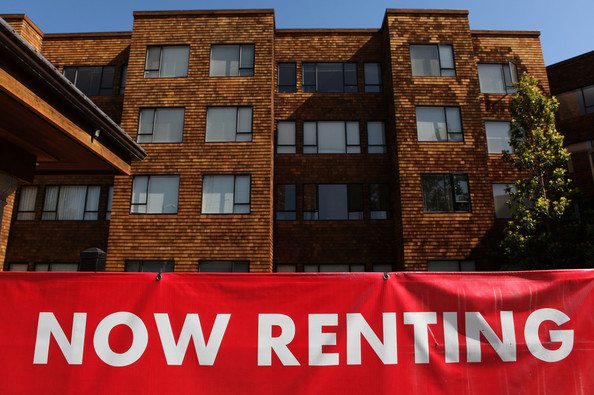Leasing. Everyone has probably done it at some point in their lives. I’ve found over the years that people are usually hard wired one way or the other. Leasing residential real estate has some benefits, namely little to no maintenance or secondary costs associated with home ownership. Whether leasing by choice or necessity, there are some basic fundamentals that both landlords and tenants need to understand. I always emphasize to both tenants and landlords that being reasonable and honest will benefit all involved. Often times disputes arise through misunderstandings of the law, or expectations being out of whack.
Here are some key points for tenants and landlords:
Can a landlord ask a person applying for a rental unit to provide information about their income, credit references and rental history?
Yes. A landlord can ask the person applying for the rental unit to provide information such as: current residence, rental history, employment history, references and income information. However, Regulation 290/98 of the Human Rights Code has rules that landlords must follow when asking for information about the income of a prospective tenant.
What information does a landlord have to give to a new tenant?
A landlord must give all new tenants the brochure: Information for New Tenants, which includes information about the rights and responsibilities of landlords and tenants, the role of the LTB and how to contact the LTB. The landlord must give the tenant the brochure on or before the day the tenancy begins, even if the tenant does not move in on that date.
The landlord has 21 days after the tenant has signed and returned the tenancy agreement to give the tenant a copy with the signatures of both the tenant and the landlord.
Where there is no written tenancy agreement, the landlord must provide the tenant with his or her legal name and address within 21 days of the start of the tenancy.
If the landlord does not give the tenant a copy of the signed tenancy agreement within 21 days or, if there is no written agreement and the landlord doesn’t provide the tenant with their legal name and address within 21 days, the tenant can refuse to pay some or all the rent. However, once the landlord provides the tenant with the document(s), the tenant must immediately pay all the rent that they withheld. If the tenant refuses, the landlord could apply to evict the tenant for non-payment of rent.
Are Tenants able to sublet their unit?
The short answer is Yes. If the Landlord refuses consent, the Tenant can then issue termination notice. Typically subletting arises when a Tenant needs to move due to job or personal reasons. I typically can assist both parties by smoothing the transition and ensuring all sides are taken care of.
Are certain rental units are exempt from rent control?
Yes. The act states that any unit that was not occupied prior to June 17th, 1998 is exempt from rent control. This is a commonly overlooked point which can have serious implications. Most people living in new condos don’t realize that there is no rent control. Personally, if I have a great Tenant, I’m not going to do anything too drastic with regards to increases. Why rock the boat, and have to find a new tenant, incurring more costs.
The Landlord has listed their property for sale. What happens now?
A landlord or, with the written authorization of a landlord, a broker or salesperson registered under the Real Estate and Business Brokers Act, 2002, may enter a rental unit in accordance with written notice given to the tenant at least 24 hours before the time of entry to allow a potential purchaser to view the rental unit. The written notice shall specify the reason for entry, the day of entry and a time of entry between the hours of 8 a.m. and 8 p.m.
The rental unit is sold to a new buyer who doesn’t intend to live in the property. Does the Tenant have to move?
This does not necessarily mean that the Tenant must leave. If the new owner or his or her immediate family member wishes to move in, they would issue 60 day notice to the Tenant.
The Landlord wants to increase rent, is this possible?
Landlords may increase rents once every 12 months for sitting tenants without seeking approval from the Landlord and Tenant Board. Landlords must provide 90 days written notice using the prescribed forms. The notice must tell the tenant how much the new rent will be and when to begin paying the new rent. If the tenant thinks that the new rent is too high, the tenant can give the landlord written notice of termination and move out before the rent increase begins.
Are post-dated cheques necessary?
Landlords cannot demand Tenants provide them with post dated cheques. Providing cheques in advance is super convenient and I do recommend all parties do it.
Does a landlord have to give rent receipts?
A landlord has to give a tenant receipts for rent or any payment or deposit if the tenant asks for them. This includes payment of rent arrears. The landlord cannot charge for this receipt. Landlords also have to give rent receipts to former tenants during the first year after their tenancy ends.
Does a landlord have to pay interest on a rent deposit?
The landlord must pay the tenant interest on the rent deposit every 12 months. The percent interest is the same as the rent increase guideline that is in effect when the interest payment is due. The guideline is set each year by the Ministry of Municipal Affairs and Housing.
If the landlord does not pay the interest owed to the tenant when it is due, the tenant can:
deduct the interest from a future rent payment, or
file a Tenant Application for a Rebate
Instead of paying the tenant the interest, the landlord can reduce the amount needed to update the rent deposit (so that it equals the current rent) by the amount of interest owed.
Can a landlord ask for a deposit for keys?
Yes, but only if:
the deposit is refundable, and
the amount of the deposit is not more than the expected cost of replacing the key(s) if they are not returned to the landlord.
The landlord must give the deposit back when the tenant turns in their key(s) at the end of their tenancy.

